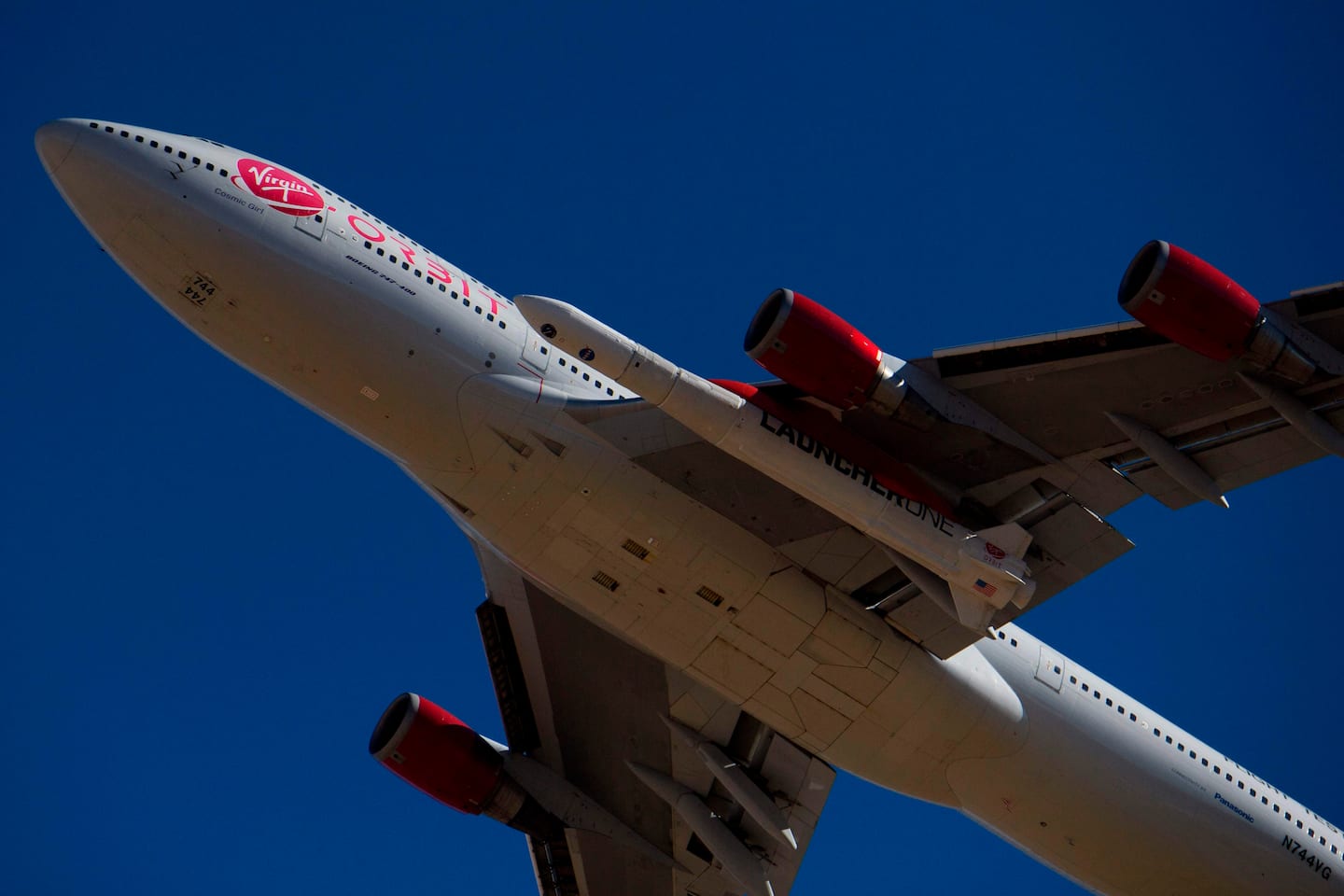Virgin Orbit rocket reaches Earth orbit, adding an entrant to the commercial space race

In tweets, the company chronicled the flight of its LauncherOne rocket, celebrating each milestone, from engine ignition to second-stage separation. “According to telemetry, LauncherOne has reached orbit!” the company tweeted at about 2:50 p.m. Eastern. “Everyone on the team who is not in mission control right now is going absolutely bonkers.”
In a statement, Branson said, “this magnificent flight is the culmination of many years of hard work and will also unleash a whole new generation of innovators on the path to orbit.”
The company hopes to be a disruptive force in the launch market by offering a small, 70-foot long, two-stage rocket suited to take advantage of a revolution in satellite technology that is shrinking their size and lowering their costs. LauncherOne would be able to hoist payloads of up to a few hundred pounds — satellites that would range “from the size of a very big refrigerator to the size of a toaster oven,” Will Pomerantz, Virgin Orbit’s vice president of special projects, said in a call with reporters before the test flight.
Instead of launching vertically from a pad on the ground, the company tethers LauncherOne under the wing of a modified 747, which carries the rocket to an altitude of about 35,000 feet. The rocket is then released, fires its engine and heads into space.
The “air launch” technique means the rocket is already above much of the atmosphere and traveling just under Mach 1, or the speed of sound, when it fires its engines. And instead of requiring a lot of ground infrastructure, the company can be flexible, essentially taking off from any runway that can accommodate a 747.
The company attempted its first launch on Memorial Day last year. The rocket dropped, but its engine cut off shortly after ignition. After an investigation, the company said there was a “breach in the high-pressure line” that carried liquid oxygen to the first-stage combustion chamber. Without the oxidizer, “that engine soon stopped providing thrust, ending our powered flight and ultimately the test itself.”
The company said it had fixed the problem and has done “an enormous amount of testing since then,” Dan Hart, Virgin Orbit’s president and CEO, said before Sunday’s launch.
While a test flight, Sunday’s mission was carrying 10 satellites in cooperation with a NASA program that allows universities and others to launch small satellites for Earth observation, weather prediction and other science and research projects. After a delay in getting data back to the ground, the company confirmed that all the satellites “successfully deployed into our target orbit.”
Virgin Orbit is entering a crowded market of companies that want to capitalize on launching small satellites. Rocket Lab, a company that launches from New Zealand, has already sent several payloads into orbit for commercial and government customers. It plans to begin launches soon from Wallops Island on Virginia’s Eastern Shore. The companies are following in the footsteps of Elon Musk’s SpaceX, which upended the launch market by offering discount launch prices with its reusable Falcon 9 rocket.
Over the past couple of years, the Pentagon has been “taking note of the utility of small satellites in this environment of space becoming a contested, I’ll say a dangerous, environment to operate in,” Hart said.
After the launch, Gen. Jay Raymond, Space Force’s chief of space operations, wrote on Twitter: “Congratulations to the Virgin Orbit Team!”
Virgin Orbit is the sister company of Branson’s Virgin Galactic, a venture that vows to become the “world’s first commercial spaceline” by flying tourists to the edge of space and back. It has twice flown people on suborbital trips to the edge of space and is gearing up to fly paying passengers as soon as this year.
Virgin Galactic suffered a setback during a launch attempt last year: A flight was aborted after the company said an “onboard computer that monitors the propulsion system lost connection,” halting the ignition of the rocket’s motor.
Virgin Galactic has not said when it intends to fly again. Branson has said he’s optimistic that he will be able to be on board a flight later this year, fulfilling his dream of going to space.






